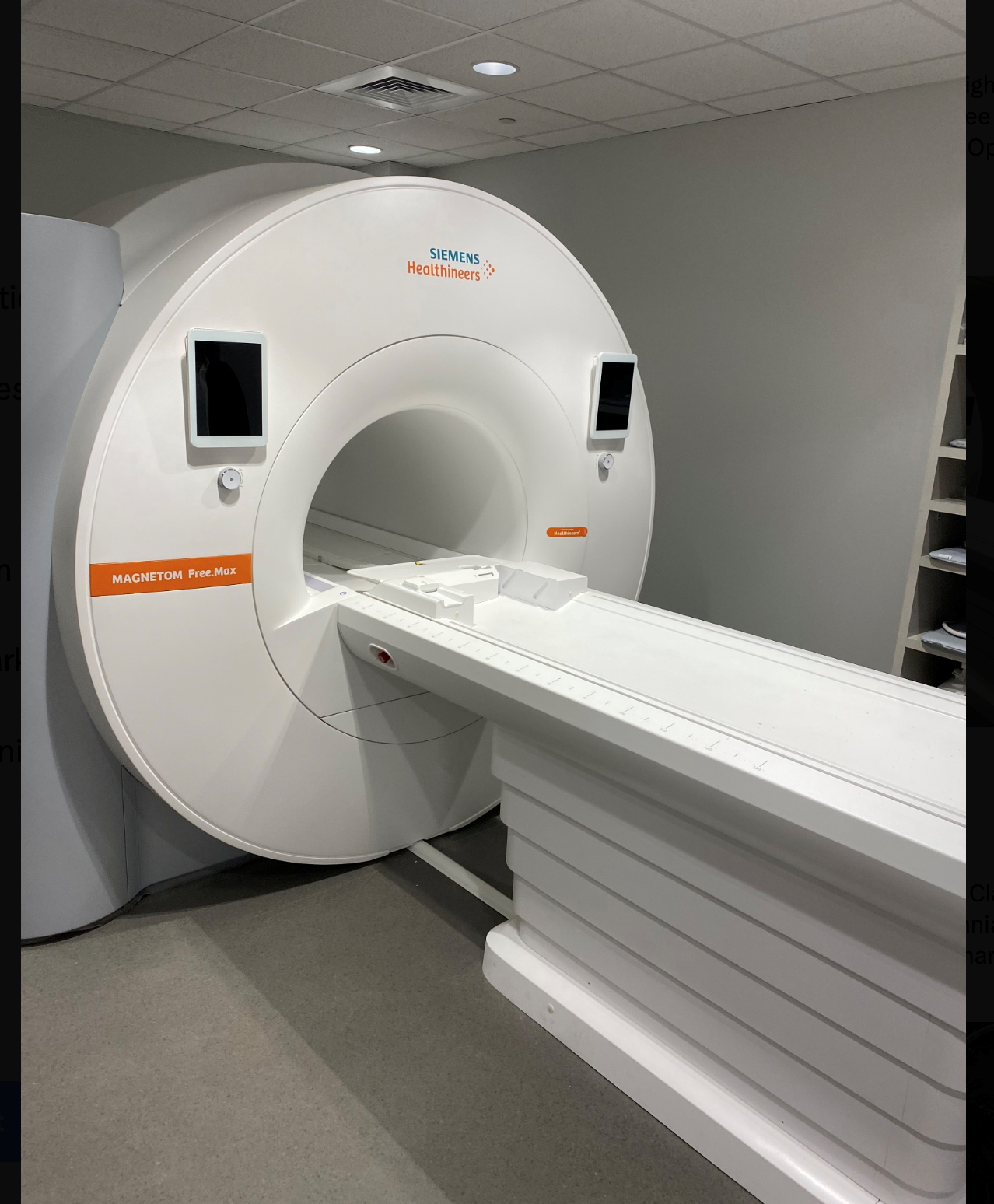
UAB Highlands MRI Imaging Center has acquired a new 0.55 T Siemens Freemax Unit. This greener, smaller, and more efficient MRI machine is in line with UAB Radiology’s mission for excellence and cutting-edge patient care and research.
UAB is one of the few leading academic institutions which has access to this advanced MRI technology, others being the University of California San Francisco (UCSF) and the University of Michigan. Having access to this level of technology is a vital resource to the institution and community in and around Birmingham, Ala. The lower cost to purchase and operate has the potential to expand MRI access to traditionally low resource areas of the state.
“The MRI section has been taking a number of steps to provide top-notch customized diagnostic care and increase MRI access to the patients of Alabama,” said Manoj Tanwar, M.D., chief of MRI. “Also, we are trying to incorporate most advanced greener technologies”.
This cutting-edge MRI machine leverages artificial intelligence to help increase quality patient care and reduce the environmental footprint of UAB’s imaging services. It provides high quality imaging results that are vital for medical decision making, with less energy and less helium. Healthcare is estimated to be responsible for up to five percent of global emissions, and imaging has become central in decision making, with almost all patients receiving some form of imaging in their hospital journey. Incorporating greener technologies for radiology has never been more important than current era.

“We are excited for the opportunity to partner with Siemens and take advantage of the new 0.5T MRIs strengths,” said Mason Frazier, M.D., vice chair of clinical affairs and the executive medical director of the Department of Radiology. “It will provide new opportunities for research, as well as allowing us to continue to provide the efficient, high-quality imaging that our patients expect”.
Although the machine is smaller in overall size, it has a larger than average bore size of 80 centimeters, which allows more access to imaging a variety of patients and will improve access for high BMI and claustrophobic patients compared to traditional units. The lower field strength creates less artifact from metal, creating opportunities for improved imaging of patients’ with artificial joints, hardware, and other metal implants.
“Our early experience in low field MRI of abdominal and pelvic MRI is nothing short of remarkable and I am exceedingly proud of our team,” said Sam Galgano, M.D., vice chair of quality and patient experience and division director of abdominal imaging. “I look forward to our team of radiologists and scientists at UAB to continue to push the boundaries of what is possible to advance both science and patient care”.
About Siemens Healthineers
Siemens Healthineers AG (listed in Frankfurt, Germany: SHL) is shaping the future of healthcare. As a leading medical technology company headquartered in Erlangen, Germany, Siemens Healthineers enables healthcare providers worldwide through its regional companies to increase value by empowering them on their journey towards expanding precision medicine, transforming care delivery, improving the patient experience, and digitalizing healthcare. Siemens Healthineers is continuously developing its product and service portfolio, with AI-supported applications and digital offerings that play an increasingly important role in the next generation of medical technology. Siemens Healthineers also provides a range of services and solutions to enhance healthcare providers’ ability to provide high-quality, efficient care to patients. In fiscal 2021, which ended on September 30, 2021, Siemens Healthineers, which has approximately 66,000 employees worldwide, generated revenue of €18.0 billion and adjusted EBIT of €3.1 billion. Further information is available at www.siemens-healthineers.com.
About the MAGNETOM Free.Max (0.55T) MRI scanner
The first and only 80 cm wide-bore MRI system available in the market and the company’s smallest, most lightweight scanner, MAGNETOM Free.Max combines a mid-field strength magnet with the latest deep learning-based AI technologies to simplify operations and enhance imaging performance, all while broadening the range of clinical applications. The sealed-for-life system design uses less than 1 liter of helium, thus making a significant impact on helium’s and the MRI industry’s sustainability. The MAGNETOM Free.Max scanner features a smaller footprint, reduced weight, and overall easier siting requirements, making it possible to install MRI in more locations.